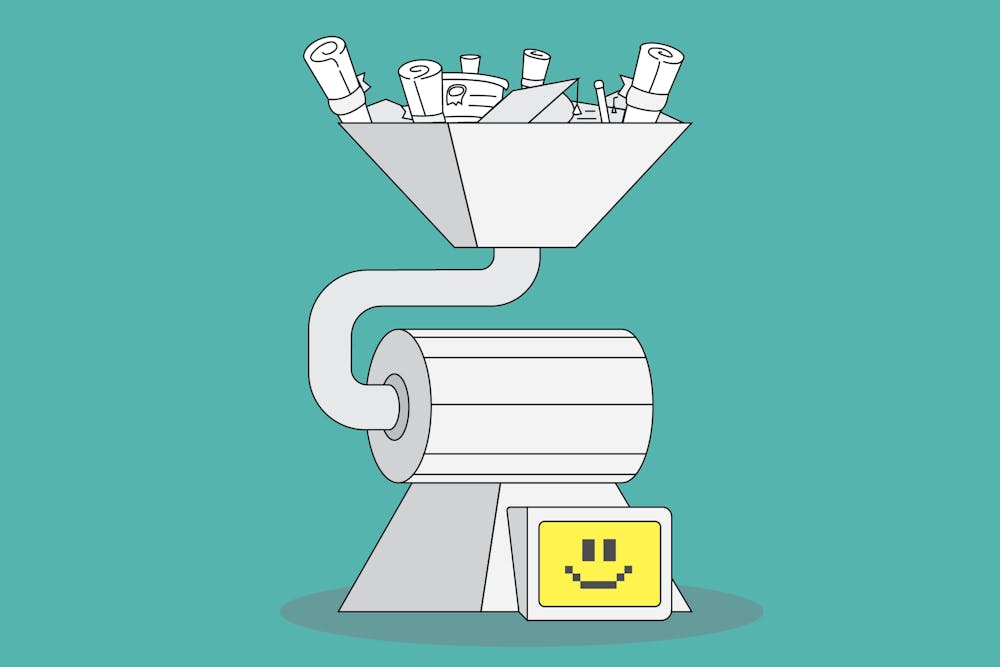As an English major, desperate for a future where I can actually use my education, I nearly jumped out of my seat when I saw an email from Handshake that said an employer was looking for an advanced English writer. Even better, they promised remote work, flexible hours and compensation of up to $40 an hour. Just as the dream of financial security with an English education materialized before my eyes, I saw the job title and got sucker-punched back into the reality of a tech-based world. The employer wanted an artificial intelligence trainer.
With AI’s rapid infiltration of academia and workplaces over the past few years, an increasing number of AI training jobs have opened up, seeking strong writers from various humanities backgrounds to help improve its fluency. Many students, like myself, face an economic trolley problem: do we forfeit immediate job opportunities in hopes that we can stop AI from replacing us in the future, or do we earn now and pay later?
We now know that AI is capable of doing things like passing the bar exam, assisting authors in writing novels and passing the Turing Test. As it has proven its ability to compete with humans in various STEM-related tasks, companies have taken notice and begun replacing human labor with cheaper technological alternatives.
This shift has hit tech and data-based professions, and writing and humanities-based work seems to be next. AI just needs to catch up a little closer to humans first, which is why I find these AI training “opportunities” so predatory.
The pay and flexibility of AI training is appealing to vulnerable college students who need an income but may not be able to juggle classes, studying and traditional rigid work schedules. Who would turn down $40 an hour just to type at their convenience?
The problem comes a little further down the road. As AI advances to a point where it can perform more advanced literary and analytical tasks, like writing a historical analysis, dissecting a philosophy or writing a novel as well as a human can, we become worthless, even a burden to employers, costing them thousands of dollars more than a chatbot would. Companies want to invest in us now so that later on, they can save a buck at our expense by replacing us with computers. By taking these jobs of handwriting skills over to AI, we expedite this process.
While AI’s contributions in scientific and medical fields may be necessary and life-saving, the overreach of technology in the humanities robs them of their foundation: the human experience. It cannot feel the emotion it wants to express in literature, experience the faith it discusses in religious analyses, grasp the need for philosophy or undergo the struggles that produce the greatest art. We can feel this emotional void in AI art and writing.
The soulless art that we hate does not bother companies looking to reap profits by any means necessary. They are happy with technology that can come close enough to our capabilities to be profitable. This comes at the consumers’ expense, costing us the nuances that non-sentient beings can’t capture. The responsibility to preserve what makes the humanities so important falls on current humanities scholars entering the workforce — the ones sitting next on the chopping block.
Restrictive financial situations may leave some students without the privilege of pickiness when it comes to job hunting. However, those in a position to decline a role in the dismantling of the humanities owe it to both our peers and to future generations of historians, religious scholars, philosophers and writers to maintain the integrity of our crafts, protect our future job prospects and keep humans at the forefront of our work.



